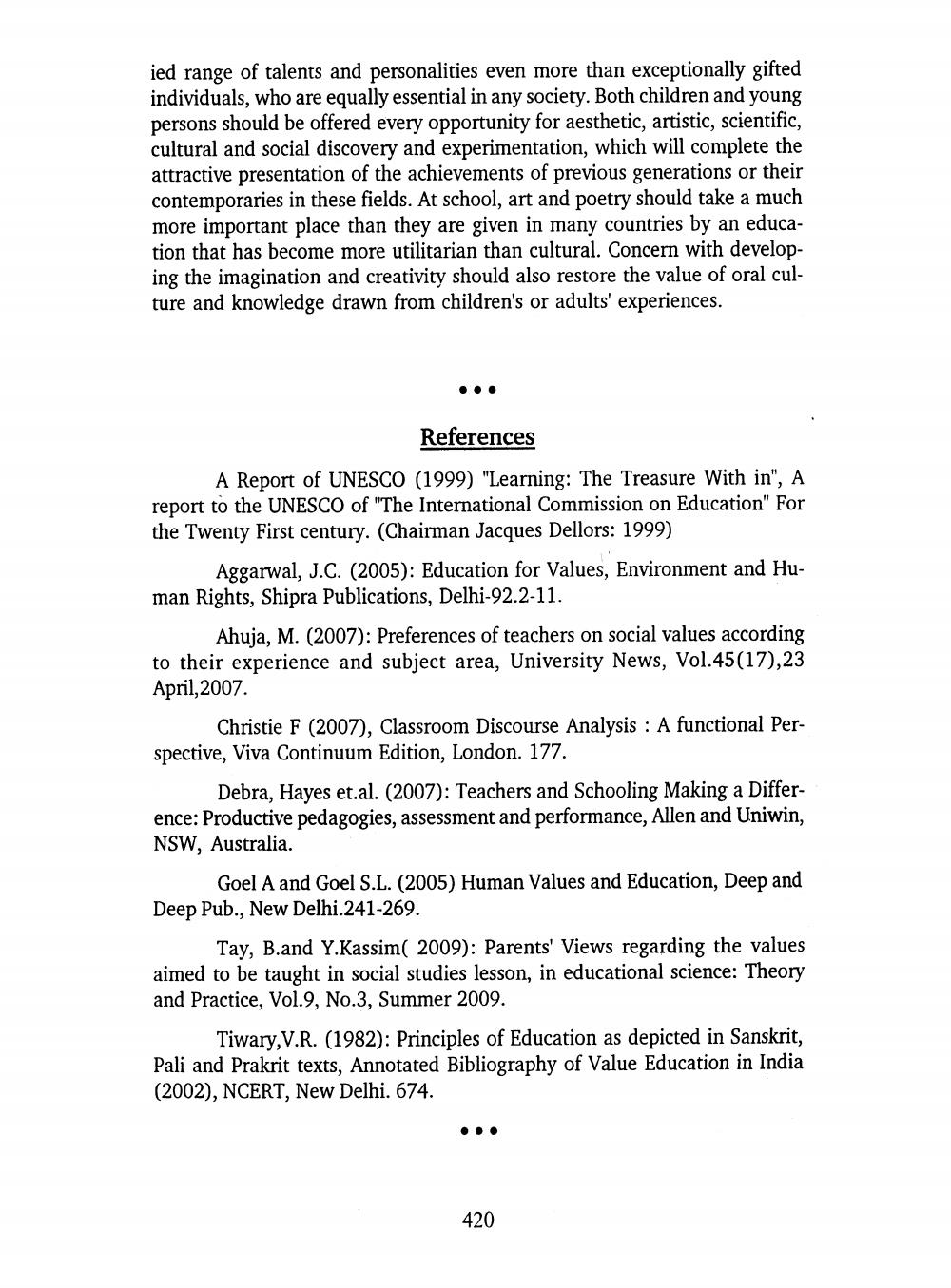________________
ied range of talents and personalities even more than exceptionally gifted individuals, who are equally essential in any society. Both children and young persons should be offered every opportunity for aesthetic, artistic, scientific, cultural and social discovery and experimentation, which will complete the attractive presentation of the achievements of previous generations or their contemporaries in these fields. At school, art and poetry should take a much more important place than they are given in many countries by an education that has become more utilitarian than cultural. Concern with developing the imagination and creativity should also restore the value of oral culture and knowledge drawn from children's or adults' experiences.
References
A Report of UNESCO (1999) "Learning: The Treasure With in", A report to the UNESCO of "The International Commission on Education" For the Twenty First century. (Chairman Jacques Dellors: 1999)
Aggarwal, J.C. (2005): Education for Values, Environment and Human Rights, Shipra Publications, Delhi-92.2-11.
Ahuja, M. (2007): Preferences of teachers on social values according to their experience and subject area, University News, Vol.45(17),23 April, 2007.
Christie F (2007), Classroom Discourse Analysis : A functional Perspective, Viva Continuum Edition, London. 177.
Debra, Hayes et.al. (2007): Teachers and Schooling Making a Difference: Productive pedagogies, assessment and performance, Allen and Uniwin, NSW, Australia.
Goel A and Goel S.L. (2005) Human Values and Education, Deep and Deep Pub., New Delhi.241-269.
Tay, B.and Y.Kassim( 2009): Parents' Views regarding the values aimed to be taught in social studies lesson, in educational science: Theory and Practice, Vol.9, No.3, Summer 2009.
Tiwary, V.R. (1982): Principles of Education as depicted in Sanskrit, Pali and Prakrit texts, Annotated Bibliography of Value Education in India (2002), NCERT, New Delhi. 674.
420




